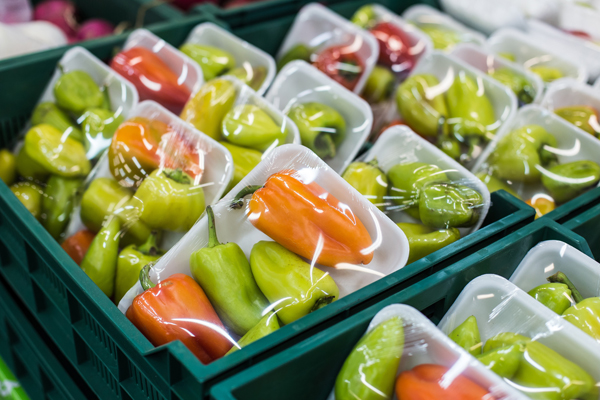- La Feria Community Holds Succesful Business Mixer Event
- Little Nashville to Take Place in Downtown Mercedes
- Lions Basketball Captures District Gold
- La Feria ISD Students Compete in Regional Chess Tournament
- Lions End First Half of 32-4A on a High Note
- La Feria ISD Held Another Successful Parent Conference
- Strong Appearance for Lions at Hidalgo Power Meet
- LFECHS Students Get to Meet Local Actress
- Students Participate in Marine Biology Camp
- Two LFECHS Students Qualify for All-State Band
Is Your Dinner Contributing to Plastic Pollution in the Ocean?
- Updated: September 21, 2018
(StatePoint) Did you know that the choices your local grocery store makes can have a global impact on the environment? From the types and brands of seafood sold to the way foods are packaged and carried out of the store, oceans worldwide are affected by the operations of grocers near you.
Fortunately, supermarkets across the country have made significant progress over the last 10 years when it comes to providing sustainable seafood options to customers, according to a new Greenpeace report, “Carting Away the Oceans.” From advocacy and transparency initiatives to addressing illegal fishing, many major retailers nationwide are improving. Overall, 90 percent of the retailers profiled in the report received passing scores, 10 years after every single retailer failed Greenpeace’s first assessment. However, experts say that the momentum of this positive trend should be applied to other areas of sustainability, too.
“It’s time to put the same energy into tackling the unaddressed issues facing seafood workers and our oceans,” says Greenpeace oceans campaigner David Pinsky. “It’s not truly sustainable seafood if it’s produced by forced labor and then wrapped in throwaway plastic packaging.
Supermarkets can use their brands, buying power and influence to do what is right for our oceans and for future generations.”
As Greenpeace points out, the equivalent of a garbage truck of plastic enters oceans every minute, and with plastic production set to double in the next 20 years — largely for packaging — threats to ocean biodiversity and seafood supply chains are increasing. According to the report, none of the retailers profiled currently have a comprehensive policy to reduce and ultimately phase out their reliance on single-use plastics.
As a customer, you can make a difference by carrying your own tote bag on shopping trips and by asking your local supermarket what steps are being taken to reduce plastic use. Consumers can also show their support for brands doing the right thing by shopping only for seafood that’s produced sustainably and ethically. To learn more, visit greenpeace.org/usa/carting-away-the-oceans.
The next time you shop for groceries, take note of both the foods you are buying and the way items are packaged. Experts say that when you eat seafood from ethical, sustainable producers and limit single-use plastic packaging, oceans worldwide will benefit.



